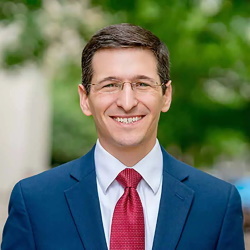The Trump administration has rhetorically embraced great power competition with the Chinese Communist Party, but last week it took a big step in the wrong direction by gutting the U.S. Agency for Global Media (USAGM) in what is being called the “Wednesday night massacre.”
The mission of USAGM (formerly the Board of Broadcasting Governors) “is to inform, engage, and connect people around the world in support of freedom and democracy.” USAGM oversees several federally-funded media entities, including the Voice of America and the Office of Cuba Broadcasting, and independent grantees Radio Free Asia, Radio Free Europe/Radio Liberty and Middle East Broadcasting Networks. Created during the Cold War, these media organizations have taken on renewed importance during an era of democratic backsliding and rising authoritarianism. In Hungary, for example, where Victor Orbán has clamped down on the free press and expanded his control over the media, Radio Free Europe is set to return later this year. USAGM also oversees the Open Technology Fund, which develops and promotes internet freedom tools like the encrypted messaging app Signal.
Last Wednesday, newly-installed USAGM CEO Michael Pack gutted the bipartisan boards of these entities and removed their professional leadership (who in several cases were Republicans). He has also frozen spending by these entities, leading to the departure of other respected leaders. These moves do what America’s authoritarian competitors have thus far been unable to: shut down U.S. organizations that advance free and open media in closed spaces.
Beijing and Moscow understand the importance of information and have been developing doctrines and strategies to advance their information control. They restrict information internally while weaponizing information flows externally. Democracies have been slow to recognize this contest and develop strategies to respond. In the last year, Chinese pressure has led American companies, including Zoom and the National Basketball Association, to censor U.S. citizens’ speech at home. Now the USAGM appears to be on a path to censoring American media abroad.
The “Wednesday night massacre” not only weakens USAGM, but also undermines one of America’s best tools to bring sunlight into authoritarian systems that prefer to work in the shadows. Authoritarian regimes fear information—that is why they focus on information control and manipulation. One of the most important ways for the United States and other democracies to push back on authoritarian rulers and empower their citizens is through truthful and transparent information. Transparency strengthens democracies. It weakens autocracies. The United States should therefore be doing everything it can to provide individuals in closed systems the ability to access outside information.
Autocrats are waging information warfare against democracies and resorting to censorship and disinformation to carry out their efforts. Yet, democracies have truth on their side; the challenge is to harness that information in often polluted and controlled information spaces. The internet freedom technologies that the Open Technology Fund has developed enable citizens to circumvent government censorship and surveillance. These efforts provide the means to both pierce closed information systems and protect activists in increasingly authoritarian environments like Hong Kong.
Undermining the bipartisan consensus on USAGM weakens our own democratic principles—taking a play from the very authoritarian toolkit we should be trying to defeat. A key marker of democratic backsliding is government takeover of free media. Although these entities are government-funded, they have always operated based on editorial independence and adherence to the highest standards of professional journalism. The sacking of respected leaders and installation of partisan boards at these media organizations raises deep questions about whether their editorial independence will remain intact—and given the independent 501(c)(3) status of several of the entities, it also raises legal questions.
The bipartisan support for USAGM has been critical to its success. But that is now evaporating. The White House has stated, “Voice of America spends your money to promote foreign propaganda.” President Trump has also attacked their coverage, calling it “disgusting.” Democrats in the House and Senate have responded, worried that the new USAGM leadership seeks to weaponize these entities for partisan political purposes. To do so would not only betray America’s commitment to a free press, but also confirm the very conspiracy theories that Moscow, Beijing, and Tehran have long advanced.
If these moves go forward, the damage will be difficult to repair. Doubt about their editorial independence will remain. The development of internet freedom technologies will stall. Until now, their independence has shone through, allowing them to maintain the trust of many people in closed societies. But these moves play into false claims that these are simply American propaganda outlets. Far from enabling us to compete with authoritarian regimes, these actions risk making our own independent, federally-funded media look more like Russia’s RT and China’s CGTN. The United States and other democracies should be doubling-down on our values of freedom, openness, and transparency, not impersonating the authoritarian regimes with which we are competing.
The views expressed in GMF publications and commentary are the views of the author alone.






